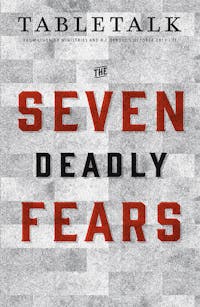
Request your free, three-month trial to Tabletalk magazine. You’ll receive the print issue monthly and gain immediate digital access to decades of archives. This trial is risk-free. No credit card required.
Try Tabletalk NowAlready receive Tabletalk magazine every month?
Verify your email address to gain unlimited access.
The Sermon on the Mount is tough to swallow all at once. Though what we have recorded for us in Matthew 5–7 is significantly shorter than the sermons most of us are used to, it is on the other hand rather more rich than what we are used to. It is chock full of what could be discreet, independent units worthy of a lifetime of study—the Beatitudes, the Lord’s Prayer, the exposition of the law of God, our calling to be salt and light. While I have not yet reached a full lifetime of considering this sermon, I have now for ten years, every month, explored in this column what it means to seek first the kingdom of God.
Month by month, we return not just to the call to seek first the kingdom of God and His righteousness, but we look at what distracts us from this call—our fears, our worries. Take one step back from “seek ye first” and you find “do not be anxious about your life, what you will eat or what you will drink, nor about your body, what you will put on” (6:25). Take another step back, though, and we find why we need to be told this over and over: “For where your treasure is there your heart will be also” (v. 21).
I’m afraid that we tend to think we can learn what our heart values most by looking at what makes us most happy. Or, I fear that we are happy to delude ourselves about what matters most to us. The truth of the matter is that we learn what our heart most values by learning what we fear. Our treasure is what we fear losing, and I fear that we fear losing our treasure. We are lovers of money.
Five years ago, in a matter of days, the stock market took its deepest hit since 1928. “Too big to fail” banks were rescued, merged. “Too big to fail” industries were propped up by “stimulus.” And many of us lost far too much sleep. The headlines are now filled with new stories of government run amok, but we still remember from time to time our economic bad news–trillion-dollar deficits, upside-down houses, abiding unemployment. We still fret.
No one likes bad economic news. There is more than enough sin and foolishness in Washington to derail the engine of prosperity. Bad economic news, however, is not all the news printed that should cause us fits. How many of us, I wonder, spend as much time and energy worrying about the destruction of the unborn as we do the destruction of the economy? I know they are related—economic hardship makes abortion seem more tempting. If we were honest, however, I suspect we’d have to admit that our ultimate concern is not the babies, but rather our bank accounts.
Those babies who survive their mothers’ wombs—do we worry more about their souls or our finances? Studies by George Barna and USA Today suggest that 75 percent of all Christian children leave the church after high school. Is this, however, what we talk about around the water-cooler?
When we get in the car and turn on the radio, are we listening to talk radio that talks about eternal souls, or talk radio that talks about Federal Reserve Notes, dollars and cents? Are we more concerned with paper dollars shrinking into nothingness before our very eyes, or for the souls that will last forever in torment?
Were I to poll the evangelical church and ask this question, “Which is more important, the eternal state of the souls of your children, or your financial position?” chances are we’d have a radically lopsided poll. If, however, I were to construct a worry meter, and attach it to the hearts of those evangelicals, what would it show us?
Again, the two, our money and our children, may be connected. We excuse our money worries by asserting our concern is for their inheritance. But why, then, are we so much less concerned about the spiritual inheritance we give them? Our treasure is where our fear is.
Which is why, of course, Jesus directs us to love, to cherish, to treasure that which can never be taken away. When we seek the kingdom of God and His righteousness, we are not merely pursuing the more valuable as opposed to the less valuable. Rather, we are also pursuing what we cannot lose, as opposed to what we cannot hope to keep. When we seek to raise our children in the nurture and admonition of the Lord, when we teach them the way they should go when they are young so that they will not turn from it when they are old (Prov. 22:6), we are not just investing in eternity, but we are investing in that which cannot be lost. When we plant the seed of the Word, we know it will not—because it cannot—return to Him void.
There is a simple and wise trick to get us over our worries. We need only to ask ourselves, “In a thousand years, will this really matter?” With respect to our children, the answer is always “Yes. For thousands of thousands of thousands of years it will matter.” Invest in eternity. Invest in your children.
